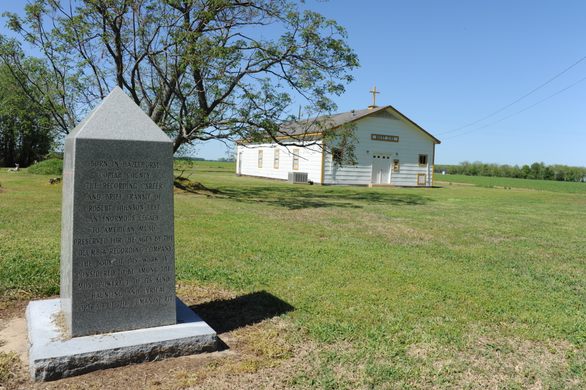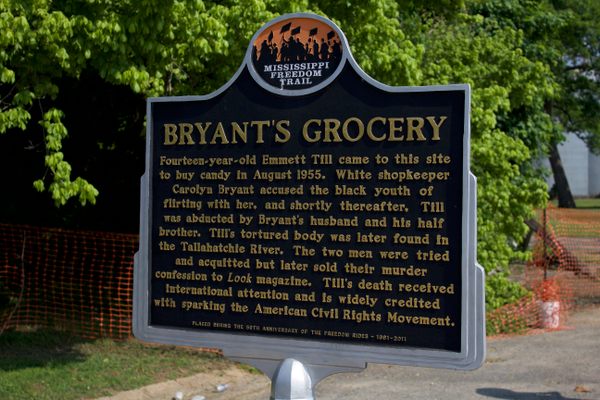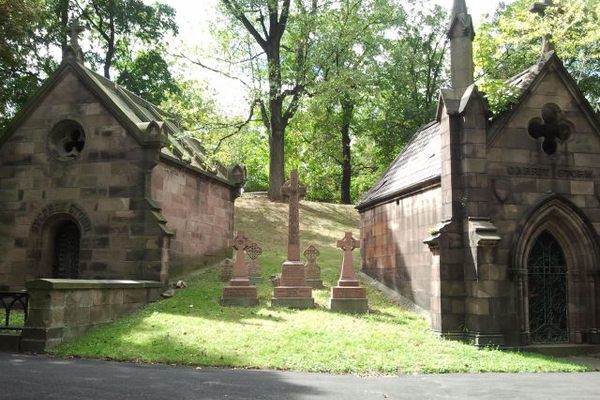Robert Johnson's Cenotaph
Contrary to popular belief, this memorial does not actually claim to mark the bluesman's grave.
This entry is a stub
“You may bury my body / Down by the highway side,” sang Robert Johnson in “Me and the Devil Blues.” So it was all but inevitable that a Mississippi church located just off of Highway 7 would end up with a memorial to the man.
But let’s make one thing clear right away: The Johnson memorial at Mt. Zion Missionary Baptist Church, or Mt. Zion MB, is not a headstone but a cenotaph. In other words, it does not actually claim to mark the bluesman’s final resting place. (War memorials, for example, are frequently cenotaphs, as the fallen soldiers are not necessarily buried on site.) It’s a common misperception that Mt. Zion MB is one of Johnson’s possible, unconfirmed gravesites—when, in fact, it is simply part of the area’s African-American cultural heritage, like Johnson himself.
In 1990, Columbia Records released Robert Johnson: The Complete Recordings, whose liner notes named Mt. Zion MB as Johnson’s burial place. There was no actual documentation supporting this claim (Johnson’s death certificate just named “Zion Church,” leaving lots of options)—but those liner notes and that suggestive lyric generated enough interest in the church for it to merit a monument.
That’s when the Mt. Zion Memorial Fund (MZMF) stepped in to arrange the cenotaph. MZMF’s mission is to preserve historic black churches by installing memorials to blues musicians, even if those musicians are not known for sure to be buried at those churches. The fund’s Executive Director, T. DeWayne Moore, says that MZMF merely “leveraged the possibility that [Johnson] might have been buried” at Mt. Zion MB in order to arrange the memorial; the group never claimed that Johnson was buried there as a matter of fact. Memorials like this one, he says, are “tools to save the cemeteries and make sure they’re not eradicated, because they’re some of the last elements of cultural heritage that are left to the landscape.”
So by all means, go visit the cenotaph. But do so with the full context in mind, and don’t miss the actual headstone just a few miles away.












Follow us on Twitter to get the latest on the world's hidden wonders.
Like us on Facebook to get the latest on the world's hidden wonders.
Follow us on Twitter Like us on Facebook